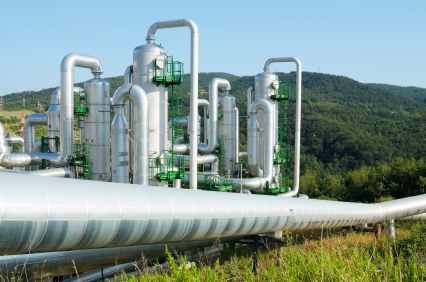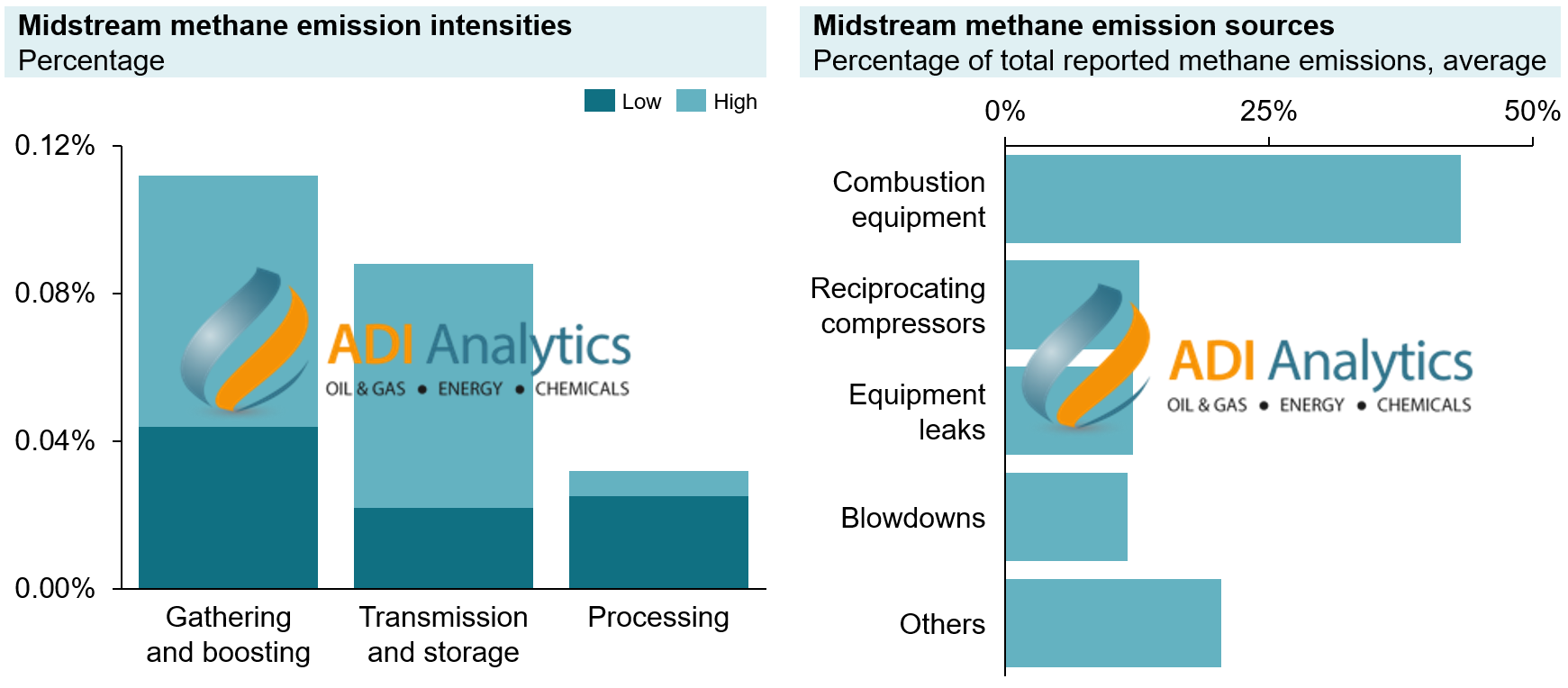
Methane, the primary component of natural gas, is a potent greenhouse gas that has significantly higher global warming potential than carbon dioxide over a 20-year period. The oil and gas midstream sector, responsible for gathering, processing, and transporting natural gas, is a key source of methane emissions and is therefore under pressure to reduce methane emissions.
Gathering and boosting operations, which collect natural gas from wellheads and compress it for further transportation, have a considerably higher methane emission intensity than other activities such as processing, transmission, and storage, as shown in Exhibit 1A. Older equipment used in these operations, such as combustion equipment, reciprocating compressors, and pneumatic devices, with less stringent emission controls, coupled with infrequent monitoring and maintenance in remote locations, leads to higher methane emissions.

Exhibit 1A: Methane emission intensities by
type of operations
Exhibit 1B: Methane emission sources in midstream operations
As illustrated in Exhibit 1B, combustion equipment is the largest source of methane emissions, followed by reciprocating compressors, equipment leaks, and blowdowns. Methane slip from combustion engines and blowdowns in large pipelines are primary sources of methane emissions in transmission and storage operations.
Midstream operators have been actively working to reduce methane emissions through various initiatives and investments in innovative technologies, aiming to keep their methane emission intensity below the Waste Emission Charge (WEC) threshold. The WEC was a fee imposed under the Inflation Reduction Act on oil and gas facilities that exceed methane emissions thresholds, but it has now been repealed. We do observe though that several midstream operators already exceed regulatory requirements, reflecting broader drivers for methane emission reductions beyond regulatory pressure. In Part 2, we will delve deeper into initiatives midstream operators are taking to reduce methane emission intensity.
– Bhautik Gajera
Please contact ADI at info@adi-analytics.com if you would like to understand methane emissions across the oil & gas value chain, policies and regulations on their mitigation globally, and developing business, operational, technology, and sustainability strategies to mitigate them.
ADI Analytics is a prestigious, boutique consulting firm specializing in oil & gas, energy transition, and chemicals since 2009. We bring deep, first-rate expertise in these segments including methane and greenhouse emissions and their mitigation, where we support Fortune 500, mid-sized and early-stage companies, and investors with consulting services, research reports, and data and analytics, with the goal of delivering actionable outcomes to help our clients achieve tangible results.
We also host the ADI Forum, one of Houston’s distinguished industry conferences, to bring c-suite executives from oil & gas, energy transition, and chemicals together for meaningful dialogue and strategic insights across the value chains.
Subscribe to our newsletter or contact us to learn more.



















